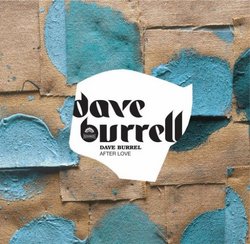| All Artists: Dave Burrell Title: After Love (Reis) (Dig) Members Wishing: 0 Total Copies: 0 Label: Verve Release Date: 3/15/2005 Album Type: Limited Edition, Original recording remastered Genres: Jazz, Pop Styles: Avant Garde & Free Jazz, Modern Postbebop, Bebop Number of Discs: 1 SwapaCD Credits: 1 UPC: 044006786728 |
Search - Dave Burrell :: After Love (Reis) (Dig)
CD Details |
CD ReviewsStill contemporary after all these years greg taylor | Portland, Oregon United States | 03/08/2007 (5 out of 5 stars) "I have (perhaps delusionally) thought of myself as well versed in the history of modern jazz. I have been listening to it and avidly collecting it's documents since around 1968.
But every once in a while, I come across a recording of which I knew nothing and which makes me wonder if I know anything about the history of improvisational music at all. This CD is part of a series of reissues from the Free America label. This was (I believe) a Parisian label that specialized in recording expatriate American free jazzmen who were living in France at the time. The labeled issues some of the best early recordings of the Art Ensemble of Chicago and Anthony Braxton's great Saxophone Improvisations, Series F along with dates by Archie Shepp, Clifford Thornton, etc.. They all seem to be available now as reissues. This particular date was Dave Burrell's fourth date as a session leader and is still remarkably innovative in many ways. Before I get to that, let me mention the personnel involved: On the two sections of After Love (the sections are distinct pieces I believe not the results of the LP format) the band is Burrell (piano), Roscoe Mitchell(saxes, clarinets and flutes), Alan Silva (cello, electric cello and violin), Ron Miller (bass and mandolin) and Bertrand Gauthier (drums). On My March, Miller and Gauthier are replaced by Michel Gladieux on bass and Don Moye on the drums. The first section of After Love (subtitled "Questions and Answers") is a treat and a shock. The sonic mix is the first thing you notice. The bass, electric cello and drums are up front and the piano and sax are in the background. The drumwork by Gauthier must have been exhausting-it is an unrelenting throb. The cello and bass (about midway, Miller changes to the mandolin for awhile) dominate throughout the piece with Burrell serving largely as a harmonic and percussive commentator. To me, Silva is simply unbelievable. His cello work seems prophetic of the way that string technique would develope in the decades after this 1970 date. It is a scratchy, microtonal romp. I bought this CD because I am a big fan of Mitchell and Burrell. I have been listening to it constantly for the last week largely because of Silva. Proof, once again, that I am an ignorant (insert noun of your choice). The second section of After Love is subtitled "Random" which is sort of fitting. The sound mix is more traditional on this piece although all the instruments are treated as equals. The piece is brooding, melodic and contrasts well with the first section. Together they form an impressive piece that must have been a treat to experience live. My March is another odd structure. It starts out with a lovely solo section from Burrell. Burrell is one of those pianist (like Jaki Byard) who knows and loves stride and ragtime piano and incorporates those styles into solos that are very free at the same time. The result is a sort of fragmented stride piano with modernistic harmonic touches. It is great stuff. After about five minutes Mitchell takes over on a clarinet (alto?). He is disjointed and uses lots of embrochure variation. Again you can hear some march cliches that are being both respected and punished. Silva comes in and does another great string solo (violin?). Suddenly at about ten minutes the soli series stops and Moye leads the whole band into a march. Moye and Gladieux mostly plays the march straight while Burrell, Mitchell and Silva perform loosely as a free trio on top of the rhythm section. Silva plucks his cello, Mitchell growls on his alto sax and Burrell connects everyone. I hope I have given you some idea of why I think this music was so innovative and possibly influential. This music predates sessions by Oliver Lake (Heavy Spirits) and Julius Hemphill (Dogon A.D.) where similar experiments were made. I guess in some ways the question of influence and historical import is of little concern to the average listener. I think I can guarantee you however that if you are a lover of improvistional musics that are experimental or free that you will very much enjoy this CD. I came to this CD hoping to delight in Burrell the pianist. I come away from it everytime delighting not only in that but in Burrell the creator of musical structures. Give it a earshot and let me know what you think." |

